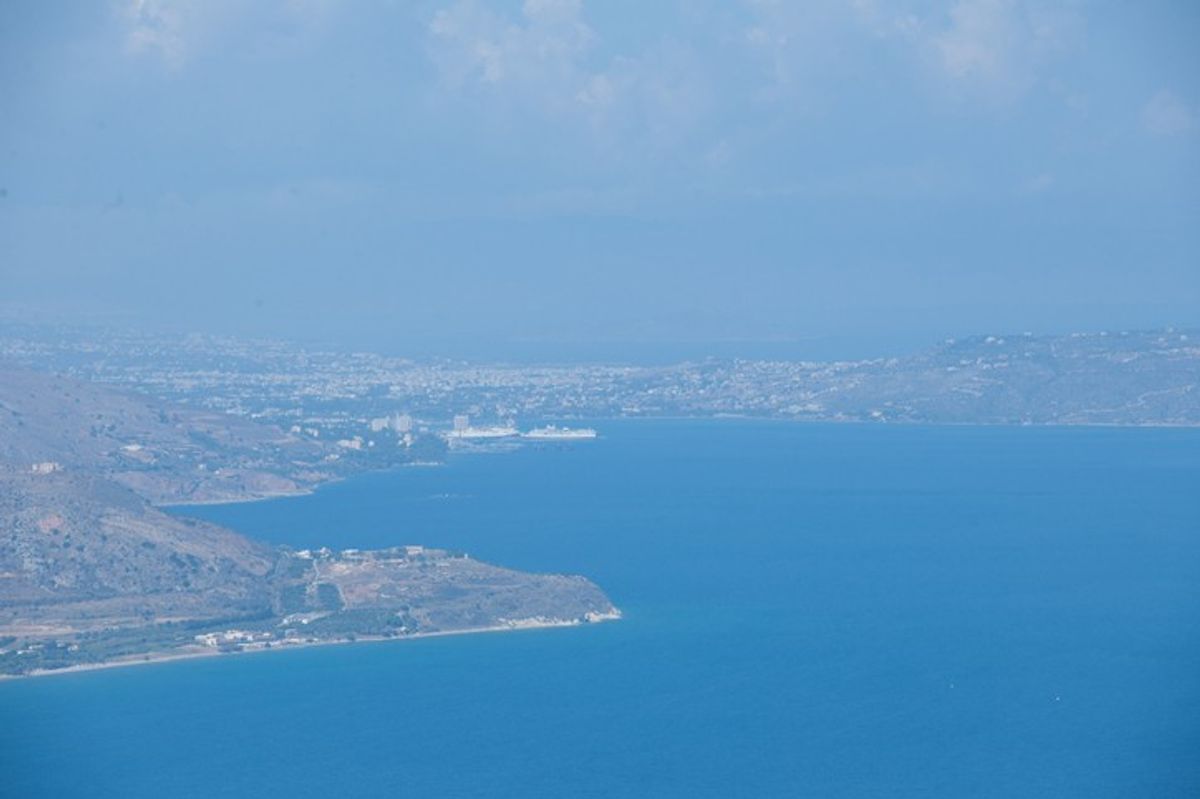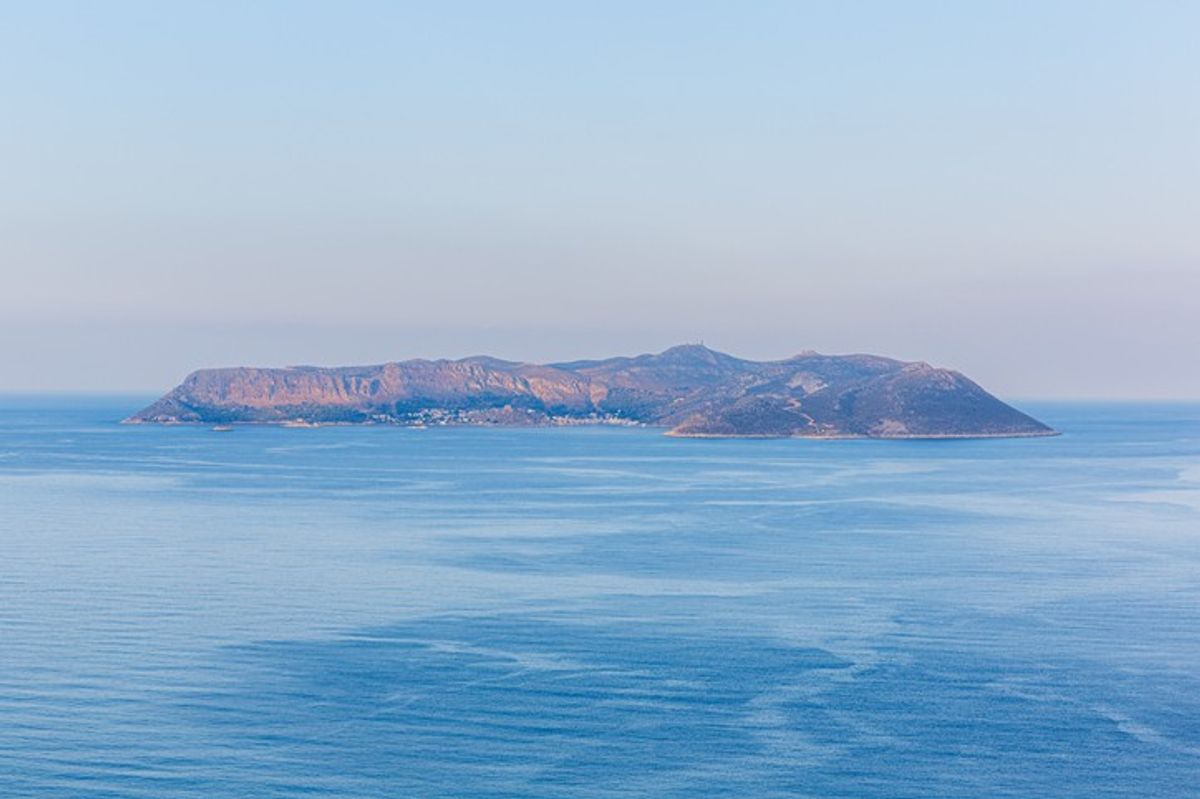On April 16, Turkey will hold a constitutional referendum, which if passed, promises to transform the country’s governing system. Turkish President Recep Tayyip Erdogan stands to gain expansive new executive powers - powers that critics say will create a de facto dictatorship in Turkey. For his part, Erdogan has branded many opponents of the referendum as terrorists and enemies of the state. The Cipher Brief’s Fritz Lodge spoke with Soner Cagaptay, director of the Turkish Research Program at the Washington Institute for Near East Policy, about Erdogan’s goals in the referendum vote, and what he is willing to sacrifice to get to “Yes.”
The Cipher Brief: How would a Yes vote in Turkey’s April 16 referendum change the Turkish constitution, and how would it expand the powers of the presidency?
Soner Cagaptay: The biggest point is that it eliminates the office of prime minister, and it consolidates the position of prime minister into the office of the president, which is occupied by Erdogan. This change would make Turkey the only democratic country in Europe, except for Cyprus, that does not have a separate office for the prime minister. It would be the only European nation except Cyprus to give the president the power to determine government budgets and appoint judges to the high courts. Winning the referendum will culminate the process of consolidating power into Erdogan’s hands. This process has accelerated in the aftermath of the attempted military coup against Erdogan last July. It has always been an open secret that Erdogan wants to become an executive-style president. However, before the coup, people expected him to push for this goal during the next presidential elections in 2019. Now, the coup has allowed him to fast-forward and consolidate power sooner.
The constitutional amendments would allow Erdogan to become not just the head of state and head of government, but head of the ruling party as well. He will become the most unassailable Turkish politician since Turkey became a multi-party democracy in the 1950s.
The Cipher Brief: From what segments of the population does Erdogan draw his support?
SC: There are a few drivers of Erdogan’s support. One is that, since coming to power in 2002, his party has delivered a pretty solid record of economic growth, although growth has slowed down recently, and unemployment has increased to 12 percent. Still, it is Erdogan’s platform of economic growth and stability that has built him a very solid base.
But, also in Erdogan’s base is a wide spectrum of right wing forces in Turkey. Turkish center-right voters form a plurality of the Turkish electorate and, in the absence of secular center-right political parties, which disappeared in the last decade. These center-right voters have switched over to the AK Party, an Islamist-center-right coalition. The main divisive force in Turkish politics has always been, and still is, Left versus Right. Turkey is mainly a right-wing country. After Turkey became a multiparty democracy in 1950, it was ruled by a right-wing party for 44 years and a left-wing party for just under two years – excluding years under the military – before the AKP came to power in 2002.
However, the center-right parties that ran Turkey disappeared in the aftermath of the 2001 economic crisis, which destroyed their credibility and brought Erdogan and the AKP to power. Now, these center-right voters, conservatives, a growing number of Islamists, and lately some right-wing nationalists, are forming Erdogan’s base of support.
The right-wing nationalists are a relatively new phenomenon, and they will be key in the referendum vote. The outcome of the referendum is not going to be determined by Erdogan supporters or leftists, but by the small nationalist faction – called MHP (National Movement Party) – which got barely over 10 percent in the last polls, but whose voters Erdogan is aggressively courting. This is part of the reason that Erdogan is pursuing such an aggressive anti-Kurdish policy in Syria and within Turkey itself. He is really eyeing MHP supporters. That 10 percent will decide, I think, whether Erdogan wins the referendum. Polls suggest that the race is very close and each vote will count, which is part of the reason that Erdogan is also trying to pick fights with outside powers, especially the Europeans. He needs to boost his nationalist credentials and convince MHP voters to support him by finding foreign “enemies”.
TCB: Who forms the opposition?
SC: People often ask me why the opposition can’t get back together, unite, and throw Erdogan and the AKP out? The opposition could have the numbers to do this, but it’s not that easy.
The gap between opposition blocs is sometimes wider than the gap between those blocs and the AKP. The opposition has disparate forces of Turkish and Kurdish nationalists, as well as conservatives and secularists. For example, the MHP is made of Turkish nationalists, while the HDP is made up of Kurdish nationalists. Both of these parties are opposition, but it is almost inconceivable that they would find themselves in the same boat. On the other hand, the MHP and AKP could well make common cause. So yes, you have an opposition, but the ideological gaps are too big between the parties.
Another major opposition party, the CHP, is a secularist, nationalist, liberal alliance in that order. This means that the CHP has three competing identities, which helps explain both the strength and the weakness of CHP. It is the largest faction outside of the AKP in parliament and draws support from a quarter of the Turkish electorate, but they cannot grow further, in large part due to multiple and competing identities.
TCB: What do you make of alleged efforts by the Erdogan government to suppress the opposition after the attempted military coup last July? How has that affected the political landscape?
SC: Because Erdogan believes, and some evidence suggests, that Turkish military officers aligned with the Gulen movement [a loose network of supporters of expatriate Turkish cleric Fethullah Gulen] played a significant role in the failed coup effort, the crackdown began by targeting mainly bureaucrats, journalists, and military officers aligned with Gulen. However, the crackdown then expanded beyond that into the territory of liberals, secularists, and leftists.
Let me remind you that Turkey still lives under emergency law. The coup took place in July. There have been roughly nine months of emergency law, and there are no signs that it will be lifted soon. We must remember that this vote will be held under emergency law.
I think the referendum vote is going to be free. Whether it will be fair is highly debatable. It reminds me of another election during my childhood in Turkey, the vote for the 1982 constitution. This election was held against the background of emergency law, two years after the military had taken over in a coup, and the generals were still very much in power. This was a vote in which a vote for the Yes option was free and fair, but the No option was not.
Today we have a very similar situation. The AKP, which is the party in power, has mobilized government resources to campaign for the Yes option. It is almost political suicide to campaign for the No option because you will be attacked, targeted, and lynched in the social media. This is why it is increasingly difficult to claim that the election will be fair.
TCB: We’ve seen an escalating feud between Erdogan and countries in the European Union, particularly Germany and the Netherlands, in recent weeks. What is Erdogan’s calculus in pursuing these very public disputes?
SC: The main calculus behind Erdogan’s inflammatory behavior – comparing German political leaders to Nazis, for instance – goes far beyond the issue of holding rallies in Europe to win Turkish expat voters. I think Erdogan is utilizing this diplomatic crisis with the Europeans to mobilize right-wing voters back home.
Erdogan has won previous elections on a platform of economic growth and stability. This is his bright side. But there is also a dark side of his electoral strategy, which focuses on demonizing, brutalizing, and cracking down on electorates that are not likely to vote for him. In the last decade, he first went after secularists. Then he went after liberals, Kurds, and leftists. With this strategy, he has won four parliamentary elections and one presidential election.
But this strategy has run its course, because Erdogan has demonized so much of the electorate that, when you add up [the factions he has attacked], they make up nearly 50 percent of the population. This is the reason that Turkey is so divided. It is the direct result of Erdogan’s strategy of brutalizing his opponents. He wins, but in the end. half of the country is in love with him, and the other half loathes him.
Unfortunately for Erdogan, this strategy has now run its course, because if Erdogan demonizes any more demographic or electoral groups he will quickly lose his majority. He can’t cast any more groups as “enemies of the people,” which is what he has done with Kurds, Alevis, liberals, social democrats, and others. If Erdogan uses the same attack on any new group, the opposition will become the majority.
In the future, Erdogan could choose to cast foreign states as “enemies of the state,” a tactic that fits in very nicely with his strategy of courting right-wing nationalist voters. That’s why I think Erdogan’s habit of picking fights with foreign actors goes beyond this electoral cycle. This will be his strategy going forward. Every time there is an election, Erdogan will try to find outside enemies – like the Europeans – that he can cast as an enemy of the people and use that to mobilize more support.
TCB: Can he repair these damaged relationships?
SC: There are two schools of thought. One is that this is all about the referendum vote, and that afterwards Turkey will go back to business as usual. If this is all about elections, I don’t see how Erdogan can continue to win elections in Turkey without transferring his past electoral strategy of demonizing domestic groups to demonizing foreign actors.
Erdogan has just found out that he might be able win elections – of course we’ll have to wait for the result of this referendum – by casting Europeans as the new enemy. I think it’s going to be hard to walk back from that strategy, even if the Europeans launch an effort to mend ties after the election. That might work for a few months, but next time there’s an election in Turkey, expect the same kind of incendiary behavior from Erdogan.












